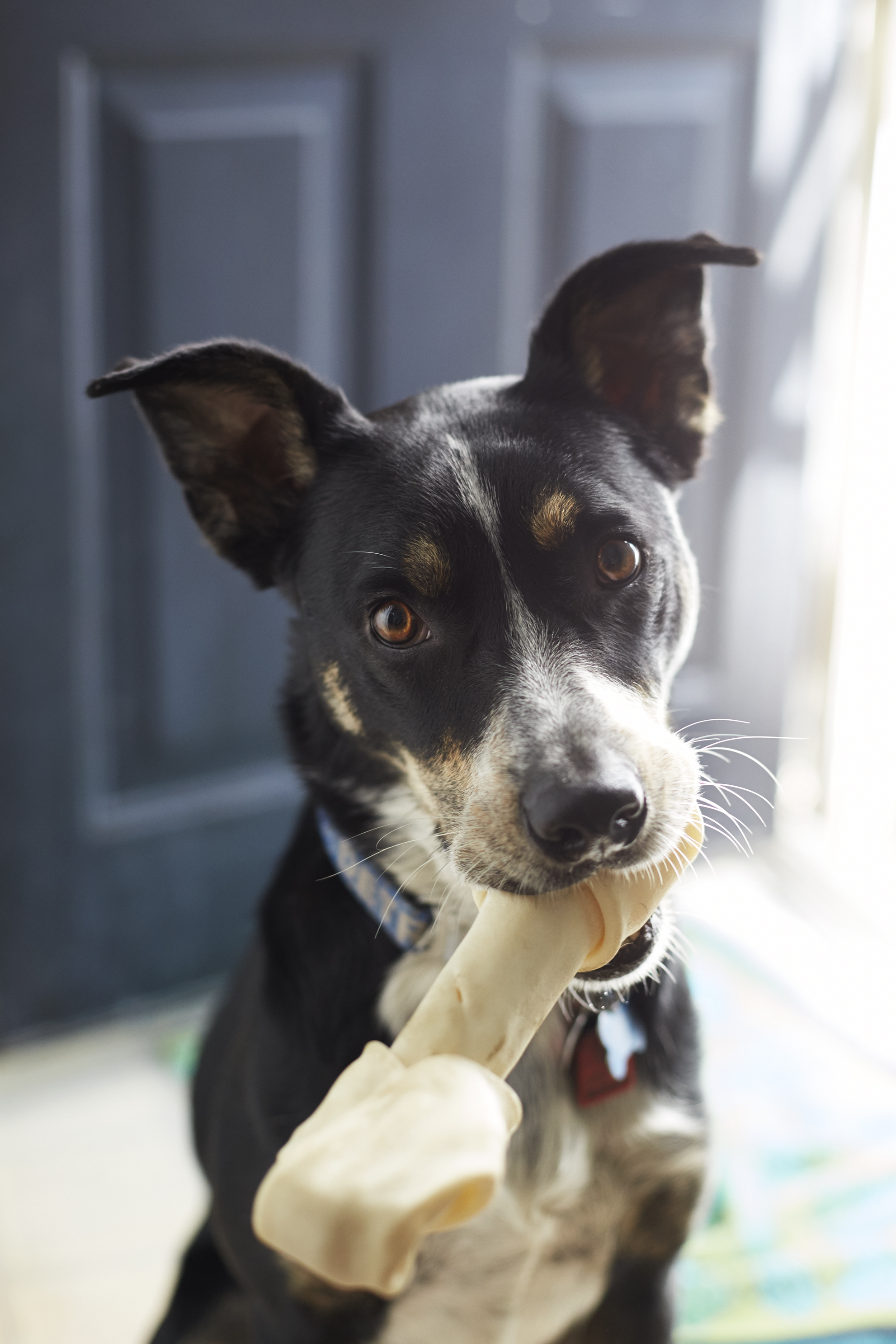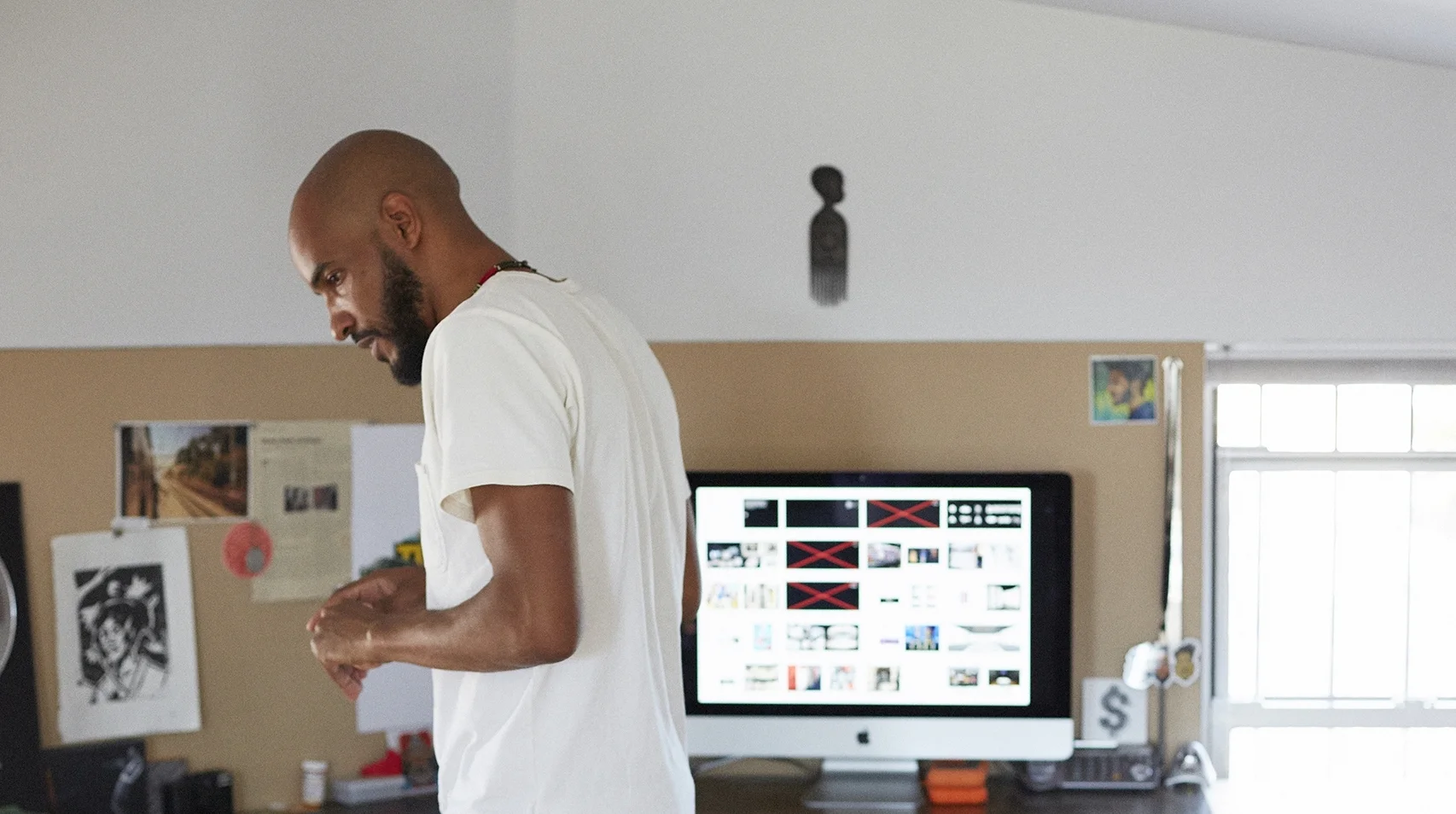WORDS: Yahdon Israel PHOTOGRAPHY: Julien Roubinet
In the many ways that we'd want our relationships with home to be easy, we come to discover that, in so many more ways, our relationships with home is hard. They're troubled with the traumas of our childhood. Some we've acknowledged, others are buried down so deep, archaeologists can't find them. And it's the difficulty of the search that makes you understand home is wherever, whoever, or whatever you're willing to fight for.
Libby Hopper and Alex Trajkovski's home is Detroit, Michigan, where they share a house, a dog named Tucker, and a renewed appreciation for a place both of them had to leave in order to love. Libby, a Concord, Michigan, is the jewelry designer behind Goldeluxe, a small handmade jewelry line that brings understated elegance to the everyday. Alex, who grew up in Dearborn, Michigan, is the Editor of Grand Circus Magazine, a biannual magazine that promotes Detroit culture through reportage, poetry, illustrations, and photo essays. We met with them in their home to talk about their first makes, what brought them back to Detroit and why, with all the complications home can present, there's no better gift.
What was the first thing you remember making?
Libby: The first thing I remember making were these binoculars made from toilet paper tubes for my grandfather. I put two toilet paper tubes together and tied yarn around them.
He taught me that you can make things—and have a creative career. My grandfather was an architect,a painter, he did jewelry casting. Everything.So I always made presents for him. I remember being really proud that I'd made those for him. He thought they were cool and he was like looking through them and I was happy that he liked it.
Alex: My first make was this drawing of a house I did when I was five. It was the first time I remember arranging elements in a meaningful way. I’m sure many five-year-olds have drawn something very similar, but for me it felt as though the picture were a bunch of puzzle pieces I was putting together. Everything in the picture was where it was supposed to be for a reason.
Why do you do what you do?
Alex: The easy answer is I do it 'cause I want to. Or feel like I need to do it. When I studied graphic design and art history was at Eastern Michigan University studying graphic design and art history it was fulfilling because you're forced to read new things. Then I’m really interested in arranging the elements to see how they work together as a series. When I'm putting each issue of the magazine together, I’m figuring out how it all works and piecing it all together.
When I was living in New York, and would tell people I was from Detroit, people would be really mortified. I met people who didn't know what Motown music was. Or whenever I told them I was from Detroit they would mention Eminem or something, and it's like, there's so much here. Grand Circus was created out of a sense of showing how much more Detroit has to offer.
So when I moved back to Detroit, I went to a party in Woodbridge and met the woman would become my partner, Eileen Tjan. I told her I wanted to do a magazine. She thought it was a good idea and offered to design it. We did a kick-starter, got enough money to fund the printing of the first issue. That was how we got started.

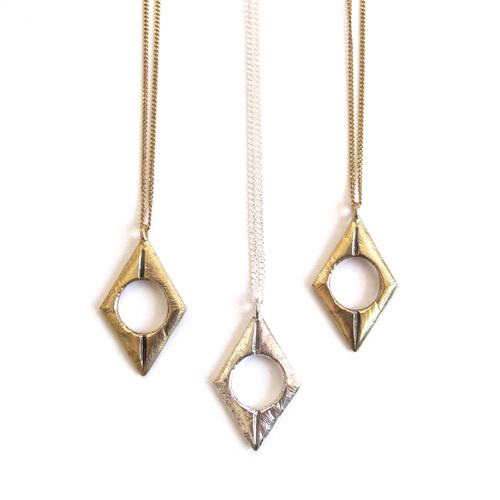
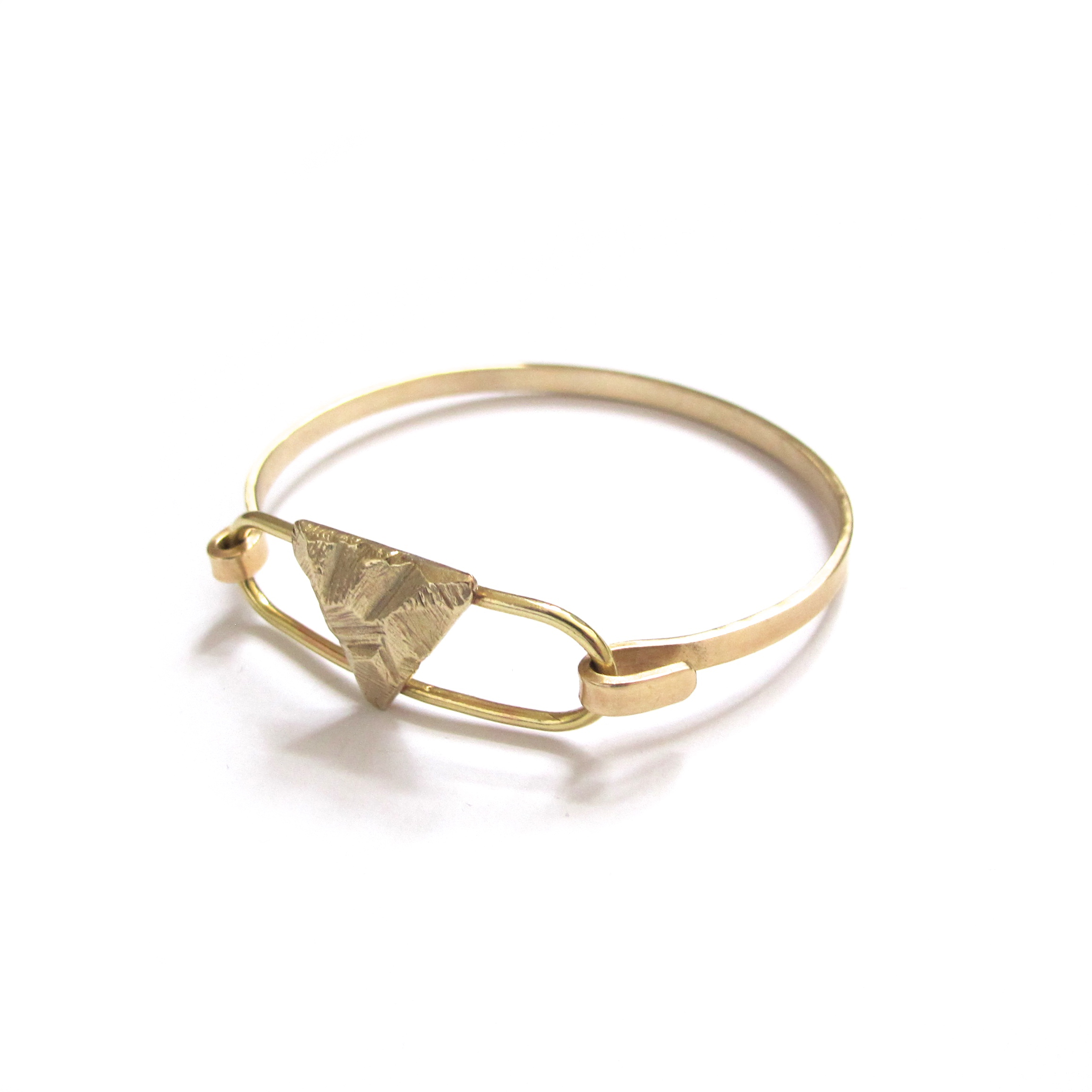
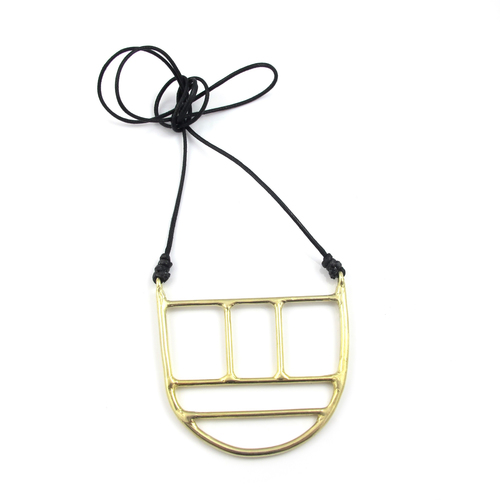
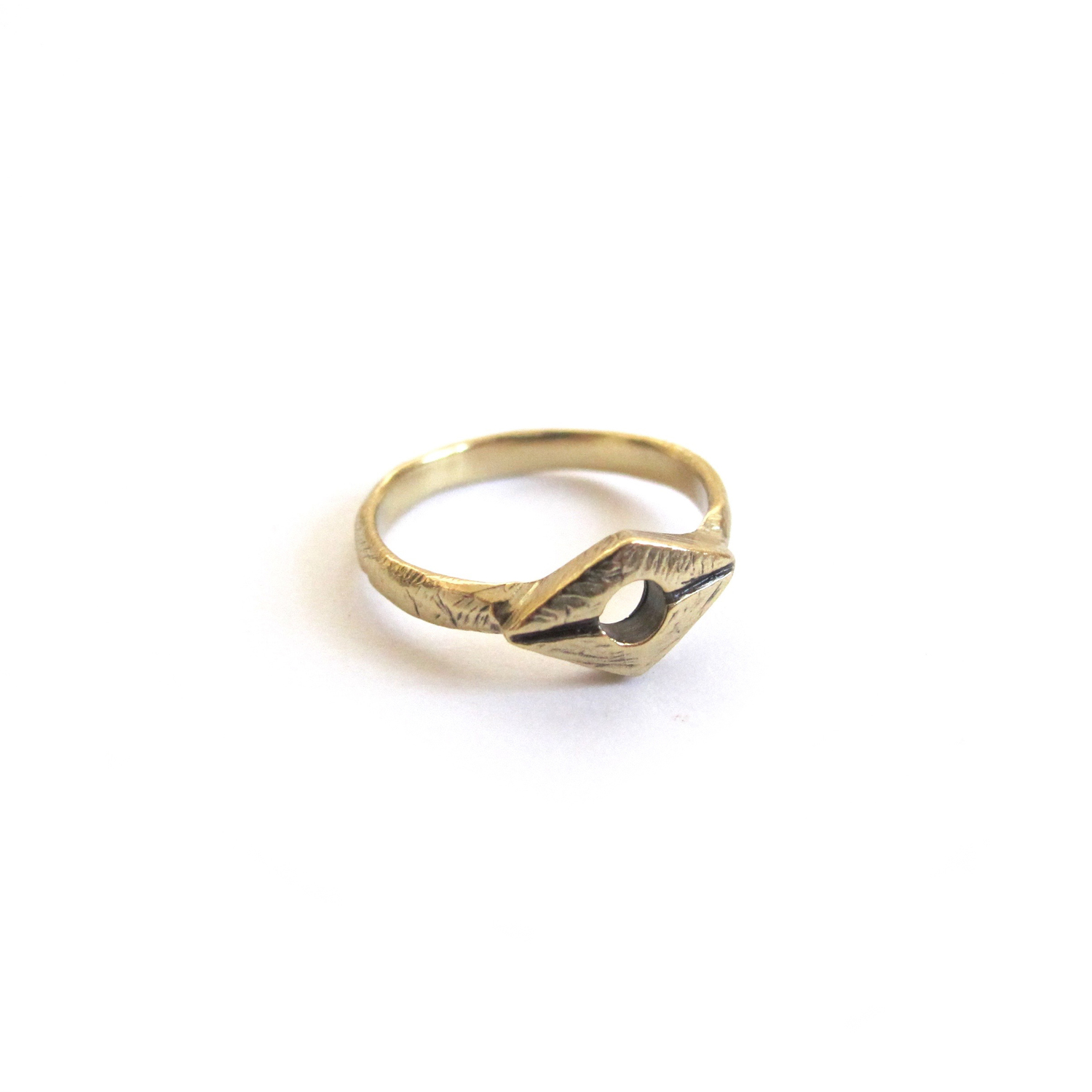
Libby: I guess I make what I make out of a deep-rooted need to create that's always been inside of me. I created my business because it's fulfilling and satisfying to make a living doing what I love.
I've always wanted to do something creative and I couldn't really figure out what the right thing was but then for my birthday, my friend came over to my house, brought beads, and we made necklaces. I was like, "This is really fun."
After several temp jobs, I moved to New York and got a job through a jewelry designer. I was her first hire for her after a long hiatus so I pretty much learned how to run a business. How jewelry production is done. Everything. I didn't really know how to metal smith or wax carve like I do now but watching it all happen I felt what I was a part of was cool. So I just took two six-week classes in New York.
Almost around the time I was finishing the jewelry production classes, I went into a store and the owner told me how much she really liked my earrings. She asked me if I had a line sheet, which is what you would use if were selling something wholesale. I didn’t but because of my job, I knew how to make one so I told her, "Let me get back to you in a couple days." A couple days later I brought her my line sheet and got my first wholesale order. That’s when I said to myself, "I should do this."
What's your process in making? How do you decide what to make?
Libby: I basically just make what I want to wear. Every six months I try to design a new collection. I have an idea in my head but then I sit down and just mull it over in my head for a long time and sketch something that I haven’t worn but would like to. My past collections had a lot of small pieces so the first thing I decided to made in my new collection was something really big.
Alex: A good friend told me that Grand Circus is a magazine about how one relates to the city around them. So the only theme of Grand Circus is that it's all Detroit culture. The creative process starts with reading a lot, being interested in different kinds of media, and then asking myself how can I implement the things I’m learning with a particular issue? What writers and photographers can I put to these ideas that will bring life to a particular conversation about Detroit? After I've put it this all together, I pass it along to my partner, Eileen, and then she designs it.
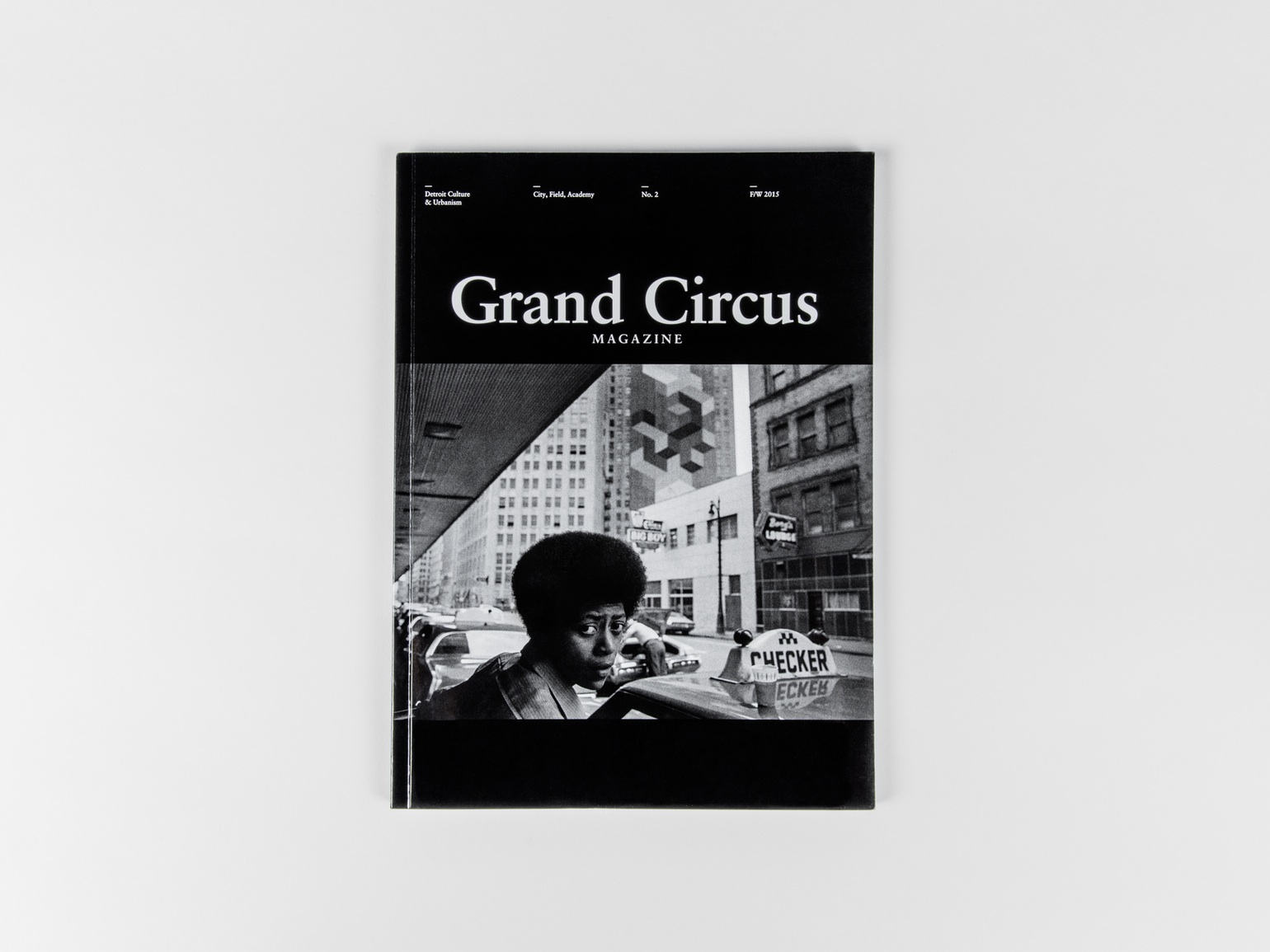
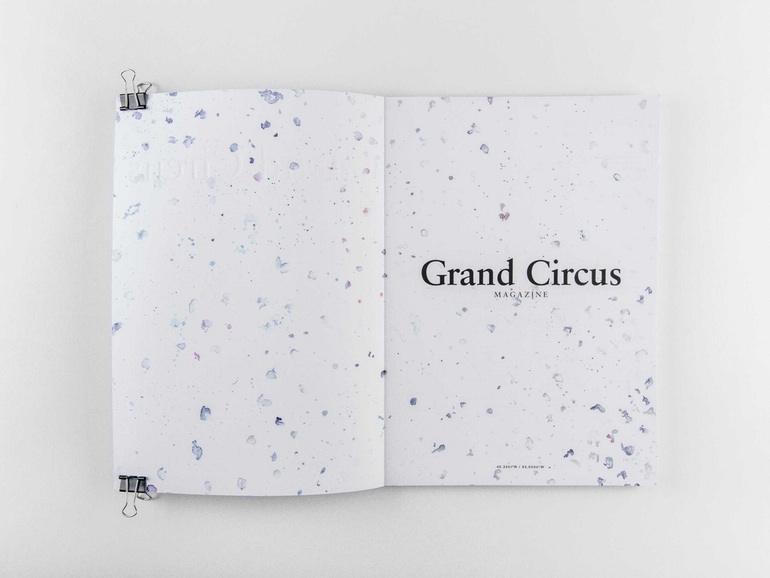
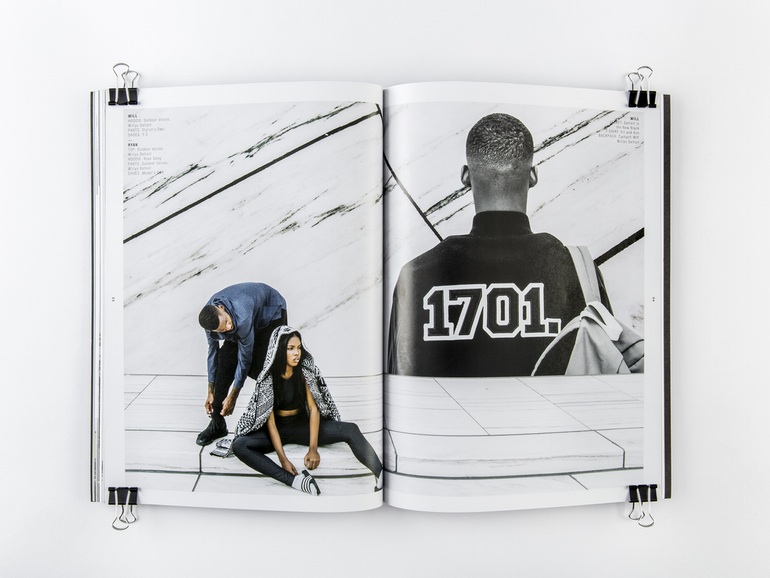
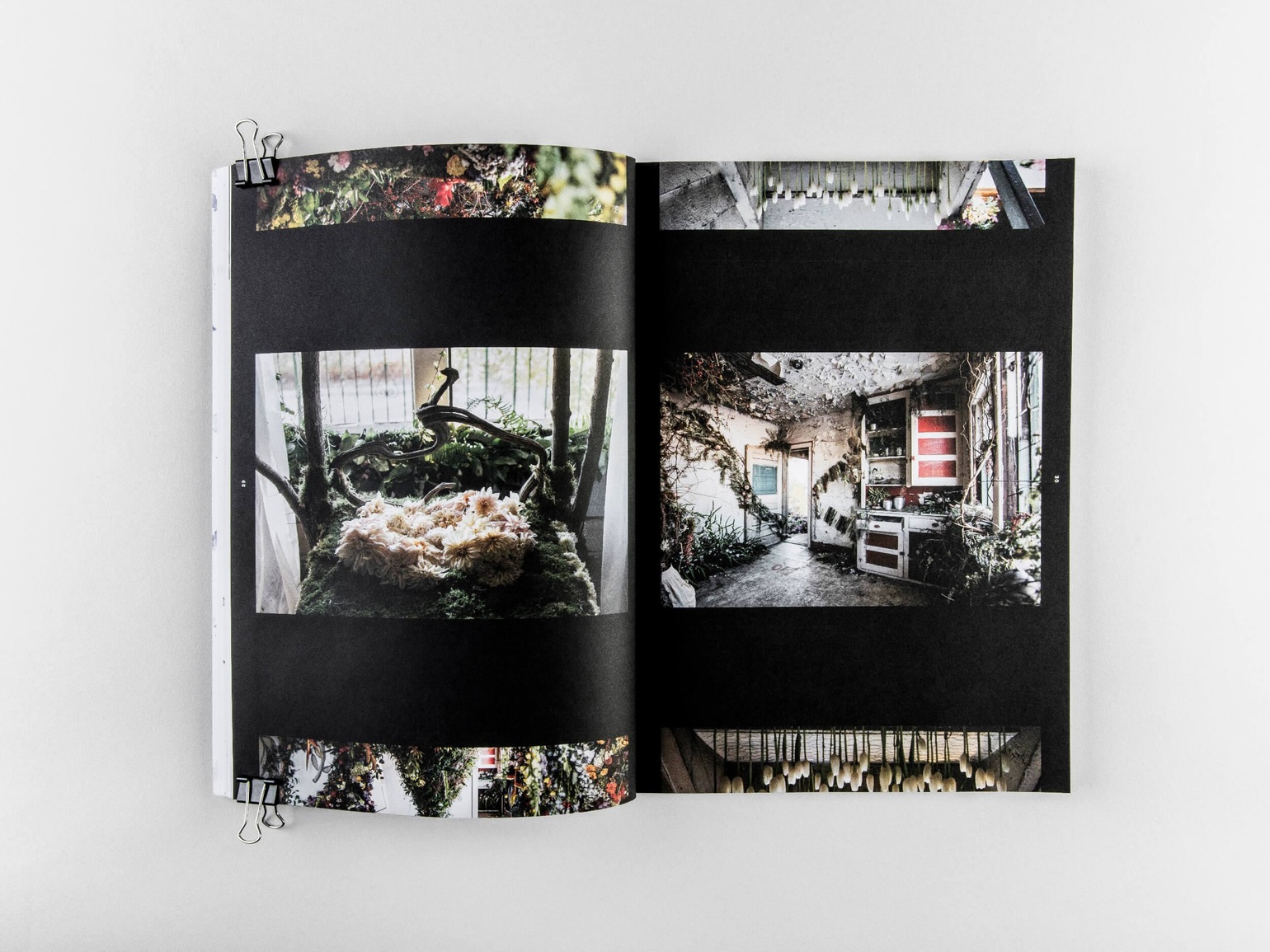
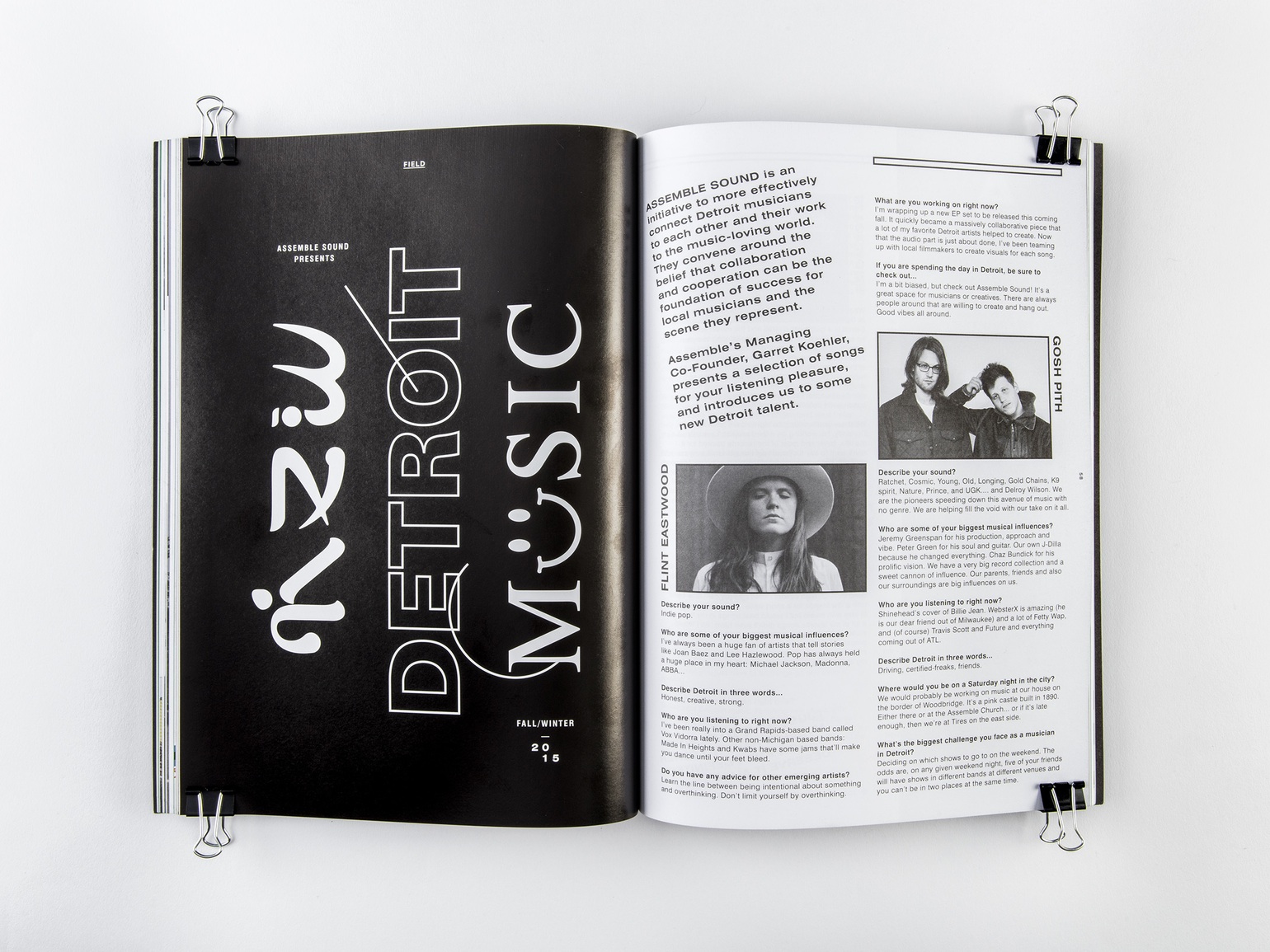
What inspires you as a maker?
Alex: Really I just really love the format of well-crafted magazines. KinFolk magazine is one them. It's a lifestyle magazine that promotes slow living. So like encouraging a better quality of life for people. The layout and aesthetic are just really good.
Libby: I don't know if you could call this an inspiration but I just like pieces that seem like you could wear them every day. Like you don't have to think about what it goes with and it looks good with any outfit. It’s really hard to find pieces that do this, so when I see jewelry like that, it’s inspiring.
What do you wish you would've known sooner as a maker?
Alex: I wish I would've known how the business aspect of it. When you just are a person that puts out a product, you might not have a skill set that's adept to business. I’m learning that it’s definitely something you need.
Libby: I guess just believing in myself sooner and knowing that I could make a career what I do. People don’t realize that in order to do what you want to do as a maker, you have to just do it. A lot of us have so many ideas but no action because we spend so much time doubting ourselves. Actually making a career out of this sort of thing requires more action than you've ever done in your entire life because for a while, it’s just you. So I'm really grateful for my job in New York. I actually got to see how things are done. If I hadn't had that, I probably would've never known how to do anything.
What was the last thing you made?
Alex: This editorial package for Good magazine based in LA. This might not be totally true but I think Good has a solid political slant than a lot of other publications. Grand Circus doesn’t really cover politics at all but this project has definitely informed the next issue because whereas I started out saying, "This is just gonna be straight up art and art criticism, culture and music," the perspective is being broadened.
Libby: The last thing I made was a piece for a lariat necklace that's going to be a part of my holiday collection. The piece is made of wax. So what I do is use files and sand paper to get the wax as smooth as I want it. Then I put a little loop on the top, for the chain and use an alcohol lamp to like heat it. Just to get it to stick and then I send this to my casting company in New York where they'll cast it into metal. When it comes back, I'll do any other adjustments to the metal. That's when they'll make a mold and I can order as many as I want.
What has jewelry making taught you about yourself?
Libby: I think that it's taught me that I'm adequate. I don't know if this is like a common thing for people but there are times when you just feel like you're not a real artist. Or a real designer. That you’re a fraud. There’s just all these doubts I have sometimes cause my work is an extension of me—and if someone doesn't like your work, it’s like they don’t like you. I’m sure everyone has their days but more and more I'm like, "I'm cool."
Alex: Grand Circus is such a great vehicle for me because it constantly makes me talk to everyone. Like people who I would’ve never met, people from all walks of life, from all over the city, I’m in conversation with, which really helps me appreciate my city in ways that I didn’t before.
All these incredibly talented people that come together to make the magazine. It's a platform, you know? Bringing all these voices together really shows just how much culture is here in Detroit.
What do you think you've learned about other people, like people, in general?
Alex: This has taught me that people are all really good. Putting this magazine together, I've just learned that there is this really amazing spirit that's not only in Detroit; it's everywhere. But because I'm doing this project that focuses on Detroit specifically I get to see how much this city accounts for that spirit.
Libby: I have learned that people are more supportive than I would expect—especially in Detroit. Everyone here is just so supportive of the creative community. Other creatives just want to uplift each other, help each other and collaborate. Even just like hang out.
It’s really cool to be able to realize I can join this community and have all these people around to support me in any way they can. I haven't really lived here that long but as soon as I started meeting other creative people here I made real friends. People in this city really celebrate you.
MakersFinders is a digital platform that connects independent makers to passionate finders.
We have an app in private beta. We publish stories. We host events. And provide quarterly grants for our community of Makers and Finders.
Our team is dedicated to cultivating and connecting communities across various industries and cultures.








